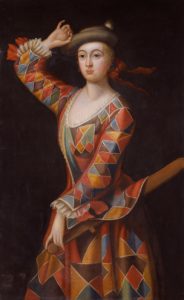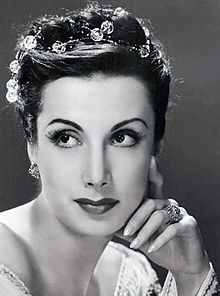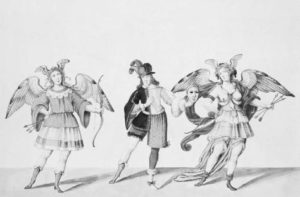Dear Zazie,
Hey there Zazie! Good to hear from you. Made me feel good to see your note. Though I wish it were under better circumstances. Sounds like you have run afoul of relationship love. Well, I cannot help you with that. Relationships are not my bag. I was de-bagged long ago, thankfully. But Jett is an expert, as you know. So I gave your note to him. And I shared it with Mac Tag and of course he turned the whole thing into verse, as he is want to do. Hope it helps. Let us know.
Here is today’s Lovers’ Chronicle from Mac Tag dedicated to his muse. Follow us on twitter @cowboycoleridge. Jett
The Lovers’ Chronicle
Dear Muse,
already so many
“To be held on to”
to be carried
from one to the next
“It sustains, breathes life”
sustenance, inspiration
even the smallest, shortest
“They all matter”
in a time when it seems
increasin’ly that forces
are conspirin’ to eliminate them
“We will keep creating”
and cherishing these moments
© copyright 2023 mac tag/cowboycoleridge all rights reserved
yes, tracin’ the lines of your face, holdin’ your curves, your hair cascadin’ down, the look in your eyes, fingertips on your skin, fingers strong with weights, pens and delicate touches, do you love these hands, cup of warm calloused palm on your cheek, the way i memorize you
© copyright 2021 mac tag/cowboy coleridge all rights reserved
© copyright 2020 mac tag/cowboy coleridge all rights reserved
in that soft Texas drawl
talkin’ ’bout creativity
and purpose
not always knowin’
what in the hell
it is all about
and keep on
writin’ everyday,
laconically of course,
with all senses wide open,
words, music, lights, sounds, touch…
lightnin’
© copyright 2019 mac tag/cowboy coleridge all rights reserved
have i told you
in the last five minutes
that you are the best
if not
then i am five minutes
overdue for tellin’ you,
you are the best
are we makin’ this
way harder
than it needs to be
is the obvious
answer
right before us
i realize
we would be
tradin’ one problem
for another
but the problem solved
is the oldest one known
© copyright 2018 mac tag/cowboy coleridge all rights reserved
a return to a place
one of our places
looks the same
feels empty
remember
when we talked
about how no place
would ever feel the same
after we had been there
sit and order coffee
take out my notebook
and begin to write
when a break happens
what is it that we miss
certainly not the hurt
do we miss the person
or the presence
and what to do
with the memories,
the naggin’
what could have been
thoughts
how much time
needs be spent
on playin’ things out
in the mind,
on imaginin’
how it would be
if they were here
simple reminders
lyin’ around
a scent,
an image,
a feelin’
think back on ways
you could have changed
on ways you wish they had
you try, you imagine
if you try again,
will it be different
but you know better
you take a deep breath
and try to push those thoughts away
of course, they come back
and you ask, what exactly
has you holdin’ on
do you miss the manipulation
and the negative emotions
or, hold on here comes fear,
have you become dependent
and can no longer feel
anything good
must it be so hard
is it hard, because
the sweet moments,
oh they were there,
are so hard to let go of
you long for them,
you need them,
they are a drug
trickin’ your mind
what is it that we miss
so much in these moments
© copyright 2017 mac tag/cowboy Coleridge all rights reserved
The Loves of Mars and Venus
Before then, ballet had always been part of operas and plays and dependent on their words to narrate the drama. The Loves of Mars and Venus was a danced drama, equal to the plays seen on London’s stage, described in its own time as a ‘Dramatic Entertainment of Dancing’, “the first of this kind produced upon the British Stage or in the Kingdom”. All the action was conveyed in dance and mime alone, setting a pattern for future ballets.
Weaver’s ballet tells the story of the love affair between Venus, the goddess of love, and Mars, the god of war, and the revenge enacted on them by her husband Vulcan. It draws on classical mythology, but contemporary passions abound, and its immediate source was Peter Anthony Motteux’s play, The Loves of Mars and Venus, written in 1695. Despite Weaver’s appeal to the revered performances of the ‘mimes and pantomimes’ of classical antiquity, who he wished to emulate, his ballet was a modern work in tune with the sophisticated comedies of his own time.
The Loves of Mars and Venus told the familiar story in six short scenes full of dancing and gestures. It lasted, perhaps, 40 minutes. Mars appears with his soldiers and performs a war dance. Venus is shown surrounded by the Graces and displays her allure in a sensual passacaille, but when Vulcan arrives she quarrels with him in a dance ‘of the pantomimic kind’. Vulcan retires to his smithy to devise revenge with the help of his workmen the Cyclops. Mars and Venus meet and, with their followers, perform dances expressive of love and desire. Vulcan completes his plan of revenge against the lovers. In the final scene, Vulcan and the Cyclops catch Mars and Venus together and expose them to the derision of the other gods, until Neptune intervenes and harmony is restored in a final ‘Grand Dance’.
 At the first performances of The Loves of Mars and Venus, Mars was danced by Louis Dupré, Venus was Hester Santlow and John Weaver himself danced Vulcan. Dupré was a virtuoso dancer who was probably French, although he was probably not the famous ‘Le grand’ Dupré of the Paris Opera. Mrs Santlow was an English dancer-actress, greatly admired for her beauty as well as her dancing skills. One contemporary described her as ‘incomparable’. Weaver’s stage skills were essentially those of a comic dancer, although he was obviously also a master of rhetorical gesture. They were supported by Drury Lane’s best dancers as the ‘Followers’ of Mars and Venus, with the company’s comedians as Weaver’s workmen the Cyclops.
At the first performances of The Loves of Mars and Venus, Mars was danced by Louis Dupré, Venus was Hester Santlow and John Weaver himself danced Vulcan. Dupré was a virtuoso dancer who was probably French, although he was probably not the famous ‘Le grand’ Dupré of the Paris Opera. Mrs Santlow was an English dancer-actress, greatly admired for her beauty as well as her dancing skills. One contemporary described her as ‘incomparable’. Weaver’s stage skills were essentially those of a comic dancer, although he was obviously also a master of rhetorical gesture. They were supported by Drury Lane’s best dancers as the ‘Followers’ of Mars and Venus, with the company’s comedians as Weaver’s workmen the Cyclops.
The Loves of Mars and Venus was a success, with seven performances during its first season and revivals at the Drury Lane Theatre until 1724. Colley Cibber the English actor- manager, playwright and Poet Laureate, said of it ‘To give even Dancing therefore some Improvement; and to make it something more than Motion without Meaning, the Fable of Mars and Venus, was form’d into a connected Presentation of Dances in Character, wherein the Passions were so happily expressed, and the whole Story so intelligibly told, by a mute Narration of Gesture only, that even thinking Spectators allow’d it both a pleasing and a rational Entertainment’. It may well have been seen by the young French ballerina Marie Sallé, who would herself later experiment with narrative and expressive dancing. Sallé, of course, influenced the choreographer Jean-Georges Noverre when he came to create his ballets d’action. They led to the story ballets of the romantic period and onwards to the narrative dance works for which English ballet became famous in the 20th century.
 Today is the birthday of Tamara Toumanova (Tyumen, Russia SFSR; 2 March 1919 – 29 May 1996 Santa Monica, California); Georgian-American prima ballerina and actress. A child of exiles in Paris after the Russian Revolution of 1917, she made her debut at the age of 10 at the children’s ballet of the Paris Opera.
Today is the birthday of Tamara Toumanova (Tyumen, Russia SFSR; 2 March 1919 – 29 May 1996 Santa Monica, California); Georgian-American prima ballerina and actress. A child of exiles in Paris after the Russian Revolution of 1917, she made her debut at the age of 10 at the children’s ballet of the Paris Opera.
She became known internationally as one of the Baby Ballerinas of the Ballet Russe de Monte Carlo after being discovered by her fellow émigré, balletmaster and choreographer George Balanchine. She was featured in numerous ballets in Europe. Balanchine featured her in his productions at Ballet Theatre, New York, making her the star of his performances in the United States. While most of Toumanova’s career was dedicated to ballet, she appeared as a ballet dancer in several films, beginning in 1944. She became a naturalized United States citizen in 1943 in Los Angeles, California.
In 1944, Toumanova married Casey Robinson, whom she met as the producer and screenwriter of Days of Glory, her first film. The union was childless. The couple divorced on 13 October 1955.
Mac Tag


No Comments on "The Lovers’ Chronicle 2 March – these moments – premiere of John Weaver’s ballet The Loves of Mars and Venus – art by Georges Lepape – birth of Tamara Toumanova"